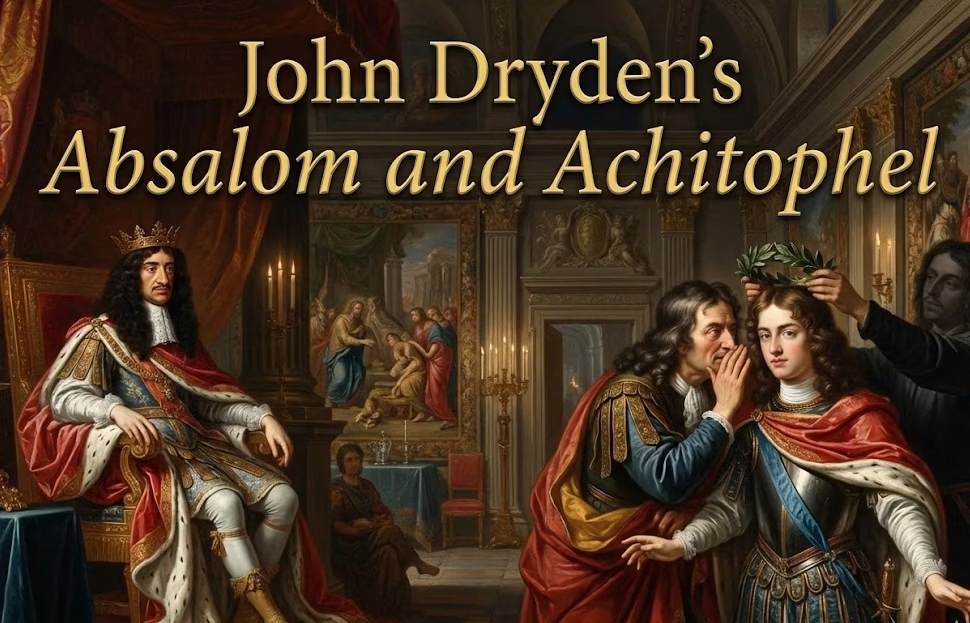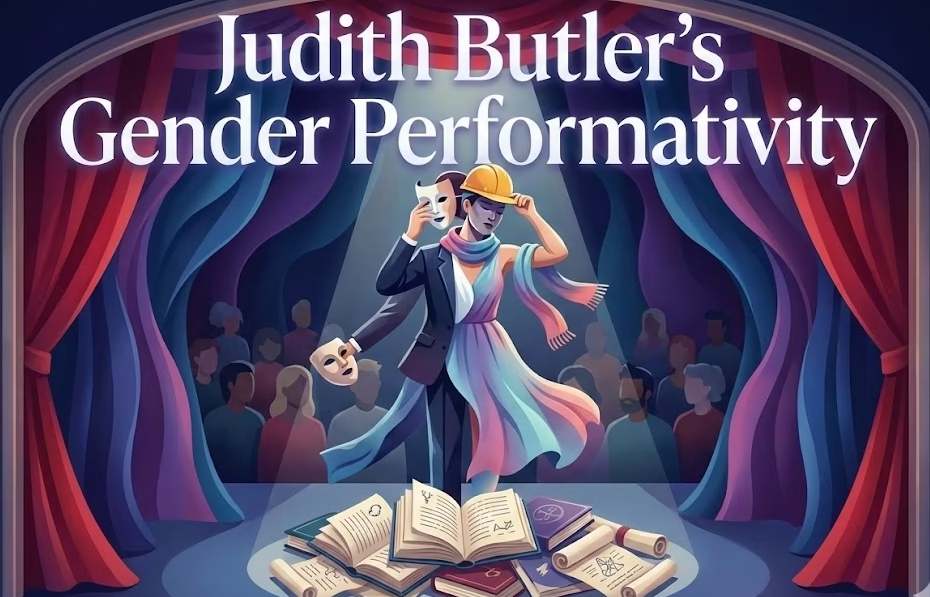Introduction
Wordsworth’s Preface to Lyrical Ballads is more than just a literary introduction. It is the cornerstone of English Romanticism—a bold declaration that forever altered the course of poetry. Written for the 1800 edition of Lyrical Ballads, a collaborative collection with Samuel Taylor Coleridge, this preface serves as Wordsworth’s poetic manifesto. It articulates his revolutionary vision of poetry: a heartfelt expression rooted in simplicity, emotional depth, and the language of everyday people.
Exploring William Wordsworth’s Preface offers profound knowledge about how Romantic ideals emerged. These ideals formed as a formidable reaction against the artificiality of 18th-century neoclassical poetry. The preface invites readers and writers to rethink poetry’s purpose and methods. It centres on nature, human experience, and sincerity.
Wordsworth’s Preface to Lyrical Ballads: A Romantic Manifesto
At the heart of William Wordsworth’s Preface is a spirited pushback against the poetic norms of his day. Wordsworth decried the “high-flown diction” and grandiose subject matter favoured by neoclassical poets, advocating instead for poetry written in a natural, sincere language “really used by men.” This wasn’t just a stylistic choice—it was an ideological statement affirming the value of common life and genuine emotion as poetic subjects.
Romanticism’s central tenet—expressing “the spontaneous overflow of powerful feelings”—finds its clearest articulation in this preface. Wordsworth didn’t see poetry as mere decorative art but as an authentic medium through which the human soul could communicate its deepest truths. This emotional honesty, combined with reverence for nature and the ordinary, challenged centuries of elitist literary tradition.
Reflecting on this, one can appreciate how William Wordsworth’s Preface serves as not only a guide for poets but also a challenge to readers: to open their hearts to poetry that embraces vulnerability and simplicity. FULL TEXT
Wordsworth’s Preface to Lyrical Ballads: Common Man Language
One revolutionary aspect of William Wordsworth’s Preface is his insistence that poetry should use the language of the everyday person, not the artificial and stylized rhetoric common in earlier poetry. He believed that poetry becomes accessible and emotionally powerful only when it speaks in the language people actually use in their daily lives.
The democratisation of poetic language was radical in an era that favoured classical education and refinement. Wordsworth argued that the rustic speech of humble people carried a purity and sincerity that artificial poetic diction could never match.
What’s particularly striking in the preface is how this linguistic philosophy dovetails with the Romantic emphasis on authenticity. By rejecting “poetic diction” as a kind of masquerade, Wordsworth elevates the mundane as worthy of poetic contemplation. This approach resonates today, reminding writers and content creators that sincerity and simplicity often touch the deepest human chords.
Wordsworth’s Preface to Lyrical Ballads: “Emotion Recollected in Tranquility”
In his Preface, Wordsworth famously defines poetry as “the spontaneous overflow of powerful feelings: it takes its origin from emotion recollected in tranquillity.” This complex phrase opens multiple dimensions of meaning.
Firstly, it underlines emotion as poetry’s lifeblood. Poetry is not a cold intellectual exercise but a passionate outpouring from the human heart. Yet, the second part emphasises the reflective process—the poet does not write in raw emotional turmoil but recollects those feelings calmly and thoughtfully. The act of contemplation transforms personal experience into art that resonates universally.
This balance between spontaneity and reflection speaks to a human truth about creativity. Many creative people know that while initial inspiration strikes like lightning, the craft emerges through quiet reflection and shaping. Wordsworth captures this beautifully, situating the poet as both a vessel of feeling and a master of form.
Wordsworth’s Preface to Lyrical Ballads: Themes
Nature as Moral and Spiritual Guide
Nature is not just a backdrop in Wordsworth’s poetic world; it is a living presence with moral and spiritual significance. The Preface embraces nature as an endless source of inspiration and renewal. Wordsworth viewed the natural world as a sanctuary from the artifices of society and a mirror reflecting the human spirit.
This reverence for nature was a hallmark of Romantic poetry and remains a guide for writers and environmental thinkers alike. Wordsworth’s work invites readers to experience nature emotionally and ethically, seeing it as a teacher that heals and elevates.
Elevation of the Common Life
Wordsworth’s Preface champions ordinary people and everyday experiences as poetry’s richest soil. His poems draw emotive power from “incidents and situations from common life”, elevating the seemingly mundane to universal significance.
In today’s content culture, this theme reminds us of the power inherent in everyday stories and genuine human connections. Whether blog writing or poetry, focusing on relatable and authentic experiences creates lasting engagement and resonance.
Defining the Ideal Poet
In William Wordsworth’s Preface, the poet is portrayed not just as an artisan but as a visionary with heightened sensibility. The ideal poet possesses deep empathy, the ability to observe life keenly, and the imaginative power to transform common experiences into profound art.
This figure is a man “speaking to men”, bridging personal insight and collective understanding. Wordsworth’s conception challenges the notion of the poet as an isolated genius, instead positioning them as a deeply connected and reflective participant in society.
This ideal remains relevant for creators today—whether they are artists, writers, or digital content makers. It underlines the importance of sincerity, empathy, and imagination in forging meaningful connections with audiences. EXPLORE OTHER AUTHORS
Wordsworth’s Preface to Lyrical Ballads: An Inspiration
If the spirit of Wordsworth’s Preface moves you, consider how you might apply its lessons to your writing or artistic endeavours.
Embrace simplicity: use language your audience naturally understands. Avoid unnecessary complexity that obscures meaning.
Celebrate the everyday: Look for stories, emotions, and themes in ordinary life. Small moments often convey universal truths.
Write from emotion: allow your feelings to guide your initial creative spark, then reflect deeply to shape it with clarity and grace.
Connect with nature: Find inspiration in the natural world as a source of beauty and insight.
Be empathetic: Strive to understand your audience and speak to their lives in compassionate, authentic ways.
Conclusion
William Wordsworth’s Preface to Lyrical Ballads stands as a poetic revolution. It is a manifesto that lifted poetry from aristocratic salons and placed it in the hearts of common people. This preface redefined what poetry could be. Wordsworth urged poets to capture the essence of human feeling by using the language of everyday life.
The impact of this preface did not stop with influencing one generation. It continues to shape how we view creativity, language, and the human spirit. Its timeless wisdom is a beacon for anyone striving to connect through words—whether in poetry, prose, or digital media.
By honouring the emotions, language, and lives of ordinary people, William Wordsworth’s Preface invites us all to discover poetry in the rhythms of everyday existence. Today, creators embracing this vision find both freedom and depth. They craft works that are simple yet profound, accessible yet transformative.
Through this, the legacy of William Wordsworth’s Preface lives on. It invites new generations to explore the power of honest expression.
FAQS
1. What is the main purpose of William Wordsworth’s Preface to Lyrical Ballads?
William Wordsworth’s Preface serves as a literary manifesto that explains his revolutionary ideas on poetry. It emphasises the importance of emotion, simplicity, and using everyday people’s language to create authentic poetic expression.
2. Why did Wordsworth choose “common life” as the subject for his poetry?
Wordsworth believed that ordinary people and their daily experiences express genuine emotions more openly and directly than formal or aristocratic subjects. He saw this as the best way to connect poetry to universal human feelings.
3. How does Wordsworth define poetry in his Preface?
Wordsworth famously defines poetry as “the spontaneous overflow of powerful feelings: it takes its origin from emotion recollected in tranquility.” This means poetry springs from deep emotion but is shaped by reflection to create meaningful art.
4. What role does nature play in Wordsworth’s poetic philosophy?
In the Preface, nature is considered a vital source of inspiration and a moral guide. Wordsworth believed that close contact with nature nurtures the human spirit and reveals universal truths, making it a central theme in Romantic poetry.
5. How did Wordsworth’s Preface influence the Romantic movement?
Wordsworth’s Preface laid the foundational principles of Romanticism by advocating for emotional honesty, simplicity, and the elevation of common life in poetry. It challenged traditional poetic conventions and inspired a new wave of poets centred on authenticity and human experience.





